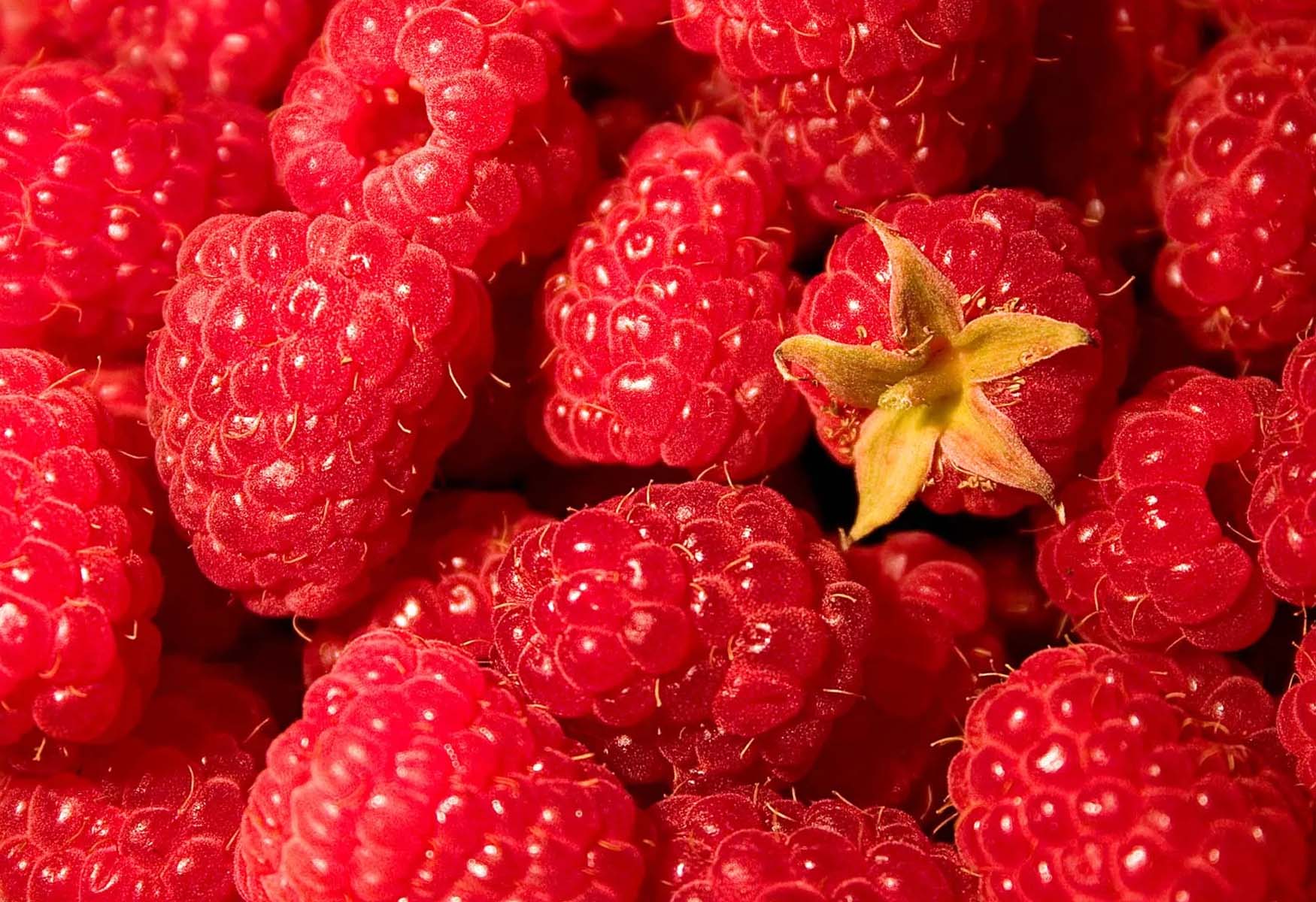
Raspberries are deliciously sweet and tangy fruits that have been enjoyed for centuries. Apart from being a delightful addition to desserts, smoothies, and salads, raspberries are packed with nutrients and health benefits. But did you know that there is more to these vibrant berries than meets the eye?
In this article, we will uncover 11 fun facts about raspberries that will not only surprise you but also deepen your appreciation for these delightful fruits. From their origins to their nutritional value, and even their role in folklore and mythology, raspberries have a rich history and an intriguing world of facts to explore.
So, grab a handful of raspberries, sit back, and let’s dive into this berry-licious adventure!
Key Takeaways:
- Raspberries are not only delicious but also nutritious, packed with vitamins, fiber, and antioxidants. They are low in calories and can be enjoyed in various ways, making them a healthy and versatile fruit option.
- With their unique flavor and medicinal uses, raspberries are a delightful addition to any diet. Their high water content makes them a hydrating choice, and they can be frozen for future enjoyment in smoothies or as a frozen treat.
Raspberries belong to the rose family.
Raspberries are delightful little berries that are botanically classified as part of the rose family. This means they are closely related to roses, strawberries, and other fruit-bearing plants.
Raspberries come in different colors.
While red raspberries are the most common, raspberries can also be found in shades of yellow, black, purple, and even gold. Each variety has its own unique flavor profile and characteristics.
Raspberries are packed with nutrients.
These small fruits are powerhouses of nutrition. They are loaded with vitamins C, E, and K, as well as fiber, antioxidants, and essential minerals. Incorporating raspberries into your diet can be a tasty and healthy choice.
Raspberries are low in calories.
If you’re watching your calorie intake, raspberries are a great choice. They are low in calories but high in fiber, making them a filling snack that won’t derail your diet.
Raspberries are rich in antioxidants.
Antioxidants help protect your body from damage caused by free radicals. Raspberries contain an abundance of antioxidants, including anthocyanins, which give them their vibrant color.
Raspberries have a short growing season.
Raspberries are typically harvested in the late spring and early summer months. This means they are at their peak freshness and flavor during this time. Enjoy them while you can!
Raspberries are versatile fruits.
Raspberries can be enjoyed in various ways. They can be eaten fresh, incorporated into salads, used as a topping for desserts, or even made into jams and jellies. The possibilities are endless!
Raspberries have a unique flavor profile.
Raspberries have a deliciously sweet and slightly tangy taste that is truly distinctive. Their flavor pairs well with both sweet and savory dishes, making them a versatile ingredient in the kitchen.
Raspberries have medicinal uses.
In traditional medicine, raspberries have been used to treat various ailments. They were believed to have anti-inflammatory properties and were used to aid digestion and relieve sore throats.
Raspberries have a high water content.
Raspberries contain a high percentage of water, making them a hydrating fruit choice. Staying hydrated is essential for overall health and well-being.
Raspberries can be frozen for future use.
If you have an abundance of raspberries, you can freeze them for later use. Frozen raspberries can be added to smoothies, used in baking, or simply enjoyed as a refreshing frozen treat.
So there you have it – 11 fun and fascinating facts about raspberries! From their unique flavor to their health benefits, raspberries are truly a delightful and versatile fruit. Whether you enjoy them fresh, frozen, or in a delicious recipe, raspberries are sure to add a burst of flavor and color to your day!
Conclusion
Raspberries are not only delicious but also packed with amazing health benefits. From their vibrant color to their unique taste, raspberries are a versatile fruit that can be enjoyed in various dishes and desserts. Whether you eat them fresh, add them to smoothies, or incorporate them into your favorite recipes, raspberries can be a delightful addition to your diet.
So next time you reach for a sweet treat, consider opting for raspberries. Not only will you satisfy your taste buds, but you’ll also be providing your body with essential nutrients and antioxidants. Enjoy the many fun facts about raspberries and let this sweet, tangy fruit become a staple in your kitchen!
FAQs
1. Are raspberries good for you?
Yes, raspberries are highly nutritious. They are low in calories and packed with vitamins, minerals, and antioxidants which contribute to overall health.
2. Can raspberries help with weight loss?
Raspberries are a great addition to a weight loss diet. They are high in fiber, low in calories, and help to keep you feeling fuller for longer periods of time.
3. Can raspberries improve heart health?
Raspberries are rich in antioxidants like anthocyanins which have been linked to a reduced risk of heart disease. They can help lower blood pressure and improve overall cardiovascular health.
4. Are raspberries safe for diabetics?
Raspberries have a low glycemic index which means they have little impact on blood sugar levels. However, it’s important to consume them in moderation as part of a balanced diet.
5. Do raspberries have any anti-aging benefits?
Raspberries contain antioxidants that help fight against free radicals, which contribute to aging. Regular consumption of raspberries may help maintain youthful skin and delay the signs of aging.
6. Can raspberries boost immunity?
Raspberries are rich in vitamin C, which is known to strengthen the immune system. Including raspberries in your diet may help support a healthy immune response.
7. Are pesticides a concern with raspberries?
It’s recommended to choose organic raspberries to minimize exposure to pesticides. Washing raspberries thoroughly before consuming them can also help reduce pesticide residues.
8. Can raspberries help with digestion?
Raspberries are high in fiber, which can aid in digestion and promote regular bowel movements. They can help prevent constipation and maintain a healthy digestive system.
9. Can raspberries be enjoyed by people with allergies?
Raspberries are generally well-tolerated, but some individuals may be allergic to them. It’s important to be aware of any allergic reactions and consult a healthcare professional if necessary.
10. Are raspberries a good source of vitamin C?
Yes, raspberries are an excellent source of vitamin C. In fact, consuming a cup of raspberries provides more than 50% of the recommended daily intake of this essential vitamin.
11. Can raspberries be frozen?
Yes, raspberries can be frozen for later use. They can be stored in freezer bags or containers and can be used in smoothies, jams, or desserts even when they are out of season.
Was this page helpful?
Our commitment to delivering trustworthy and engaging content is at the heart of what we do. Each fact on our site is contributed by real users like you, bringing a wealth of diverse insights and information. To ensure the highest standards of accuracy and reliability, our dedicated editors meticulously review each submission. This process guarantees that the facts we share are not only fascinating but also credible. Trust in our commitment to quality and authenticity as you explore and learn with us.


